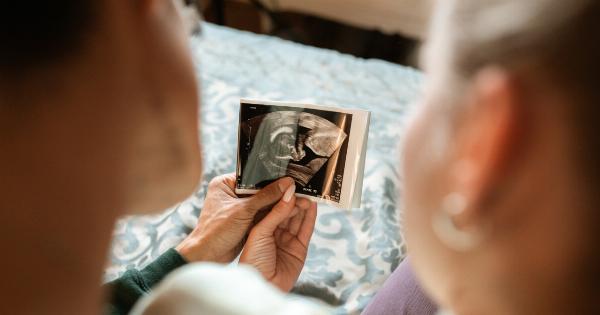Fainting, also known as syncope, is a temporary loss of consciousness caused by a sudden drop in blood flow to the brain.
While fainting can happen to anyone, it is particularly concerning for pregnant women as it poses potential risks both for the mother and the developing baby. Understanding the causes, consequences, and preventive measures of fainting is crucial to ensure a healthy pregnancy.
Causes of Fainting during Pregnancy
During pregnancy, several factors contribute to the increased risk of fainting:.
- Hormonal changes: Pregnancy hormones can affect blood pressure and heart rate, leading to a drop in blood flow to the brain.
- Changes in blood volume: As the body adapts to support the growing baby, blood volume increases. However, blood pressure might not rise in the same proportion, resulting in reduced blood flow to the brain.
- Low blood sugar: Gestational diabetes or inadequate nutrition can cause low blood sugar levels, which can trigger fainting episodes.
- Pressure on blood vessels: The expanding uterus can compress blood vessels, leading to reduced blood flow to the brain.
- Hot weather: Pregnancy can make women more sensitive to heat, and overheating can increase the likelihood of fainting.
- Standing or lying still for long periods: Prolonged periods of immobility can cause blood to pool in the lower extremities, reducing blood flow to the brain.
Risks and Consequences
Fainting during pregnancy can have various consequences, including:.
1. Injury
When a pregnant woman faints, there is an increased risk of falls and injuries, which can be particularly harmful to both the mother and the baby. A fall can lead to fractures, placental abruption, or premature labor.
2. Oxygen Deprivation
During a fainting episode, the brain does not receive enough oxygen, which can have detrimental effects on both the mother and the developing baby.
Oxygen deprivation can lead to complications such as fetal distress, preterm birth, and developmental issues.
3. Emotional Distress
Fainting episodes can be emotionally distressing for pregnant women, causing anxiety and fear about the well-being of their baby.
The fear of fainting again may also lead to avoidance of certain activities, limiting the mother’s quality of life during pregnancy.
4. Maternal Injuries
In addition to the risks associated with falls, fainting can also cause injuries to the mother, such as head trauma or fractures. These injuries can have long-lasting effects on the mother’s physical and mental health.
Preventive Measures
To reduce the risk of fainting during pregnancy, it is essential to take precautionary measures:.
1. Stay Hydrated
Drinking an adequate amount of water helps maintain blood volume and prevents dehydration, which can contribute to fainting episodes.
2. Avoid Prolonged Standing or Lying Down
Change positions frequently, especially when feeling lightheaded. Avoid standing or lying still for long periods, as it can increase the likelihood of fainting.
3. Gradual Changes in Positions
Avoid sudden movements that can cause a drop in blood pressure. When getting up from sitting or lying down, do so slowly.
4. Eat Regularly
Consuming balanced meals and snacks throughout the day helps maintain stable blood sugar levels, reducing the risk of fainting triggered by low blood sugar.
5. Avoid Overheating
Avoid hot environments and wear loose clothing to prevent overheating, particularly during warmer months.
6. Use Supportive Stockings
Compression stockings or socks can help improve blood flow to the legs, reducing the pooling of blood and the risk of fainting.
7. Sit or Lie Down if Feeling Dizzy
If feeling lightheaded or dizzy, it is important to sit or lie down to prevent injuries from falls. Placing the head between the knees can also help improve blood flow to the brain.
8. Regular Prenatal Care
Attending regular prenatal check-ups allows healthcare providers to monitor blood pressure, detect any underlying conditions, and provide appropriate guidance for a healthy pregnancy.
Conclusion
Fainting can be a distressing experience for pregnant women and poses risks to their well-being and that of their unborn child.
Understanding the causes, recognizing the potential consequences, and implementing preventive measures are crucial for ensuring a safe and healthy pregnancy. By taking necessary precautions, pregnant women can minimize the risk of fainting and enjoy this special time in their lives while protecting the well-being of both themselves and their babies.






























